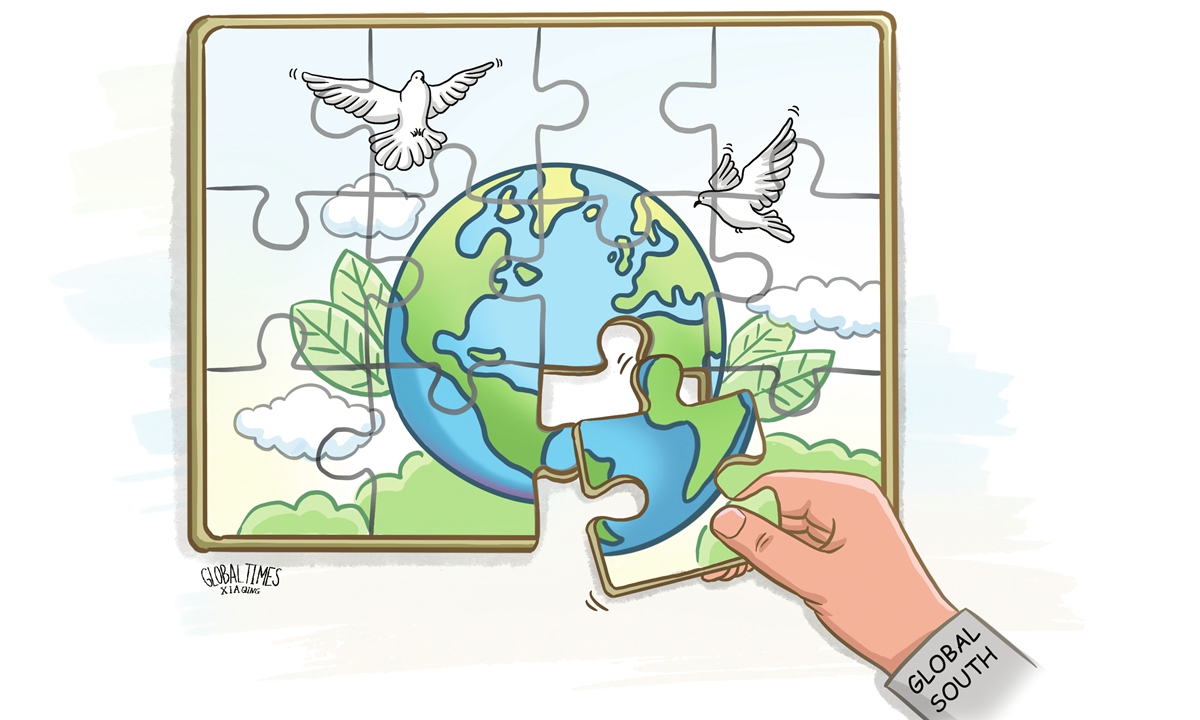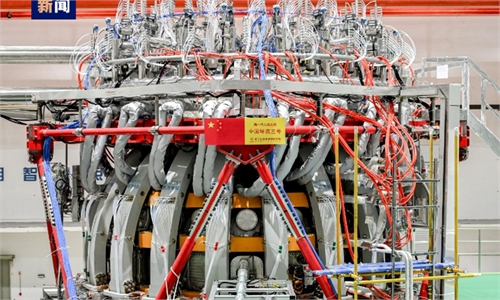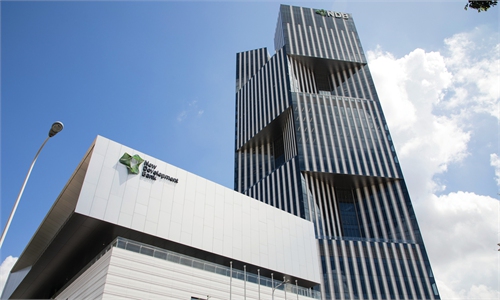Global South collaboration in tackling challenges is strong response to unfounded Western hype

Illustration: Xia Qing/GT
Currently, the Global South has become the focus of international public opinion. However, this concept does not have clear geographical boundaries, nor is it an international organization with a common agenda.
The mainstream view is that it includes a group of developing countries with diverse values, cultural traditions, development levels, and interests, mainly covering regions such as Asia, Africa, and Latin America.
In recent years, these countries have made significant progress in economic growth, technological innovation, environmental protection, and international cooperation, gradually becoming an important part of the global trend toward multipolarity, representing the collective rise of developing countries.
Compared to traditional Global North countries, the Global South has more international political connotations, such as opposing hegemonism and double standards, actively participating in global governance, and promoting multilateralism and reform of the global governance system.
After the outbreak of the Ukraine crisis, Western countries sought support from the Global South, especially as some Western countries were trying to use this concept to isolate China and weaken China's influence among developing countries. However, this has further promoted the cohesion and collective awakening of the Global South on the international stage.
For example, the BRICS mechanism expanded from the initial four member countries to five, and now includes 10 member countries, representing the growing influence of voices from the Global South on the international stage.
China once summarized the three common characteristics of the Global South: an independent political stance, a historical mission of development and revitalization, and common advocacy for justice and fairness.
Currently, representing the developing countries of Asia, Africa, and Latin America, the Global South is moving forward with strong momentum.
First, the Global South is taking big strides toward modernization. Undoubtedly, the core demand of Global South countries is development. Development means a dynamic process toward higher economic levels, better living conditions, and a more equitable international status. This process of modernization not only promotes social progress and economic development globally, but also provides new growth momentum for the world.
Second, the Global South is actively moving toward a community with a shared future for mankind. In the current complex global political and economic context, the Global South has profoundly reshaped the economic landscape. These countries are no longer the "silent majority" on the international political stage but are seen as a key force driving the transformation of the international order. Their active participation not only promotes the inclusiveness, harmony, and unity of global society but also injects new energy into the progress of the global governance system.
Third, the Global South is striving toward the sustainable development goals of the world. These countries have not only shown outstanding performance in promoting their own economic growth and technological innovation but have also made significant achievements in environmental protection and social progress.
Through strengthening international cooperation and exchanges, countries in the Global South are participating in global governance as stakeholders, jointly addressing global challenges such as climate change, poverty, and inequality. This trend reflects the increasingly important role of developing countries in global affairs, and their efforts not only bring benefits to the people in their own regions but also make important contributions to achieving global sustainable development goals.
As the world's largest developing country, China has a natural Global South attribute. Over the past 40 years of reform and opening-up, China has taken a path of modernization different from the West. Chinese modernization not only inspires the Global South but also provides valuable development experience and broad cooperation space for it.
In recent years, China has put forward plans such as the Belt and Road Initiative, the Global Development Initiative, the Global Security Initiative, and the Global Civilization Initiative, which have received positive responses from many countries in the Global South. These initiatives not only promote the economic development and infrastructure construction of countries in the Global South, but also promote significant progress in international cooperation, peace and security maintenance, and cultural exchanges.
Through these initiatives, China cooperates with countries in the Global South to jointly address global challenges, and guide the global governance system in a more just, inclusive, and sustainable direction. This is not only the important role of China in the Global South and the world stage, but also the most powerful response to the unfounded hype of the West.
The author is associate professor at Beijing International Studies University. bizopinion@globaltimes.com.cn



